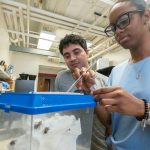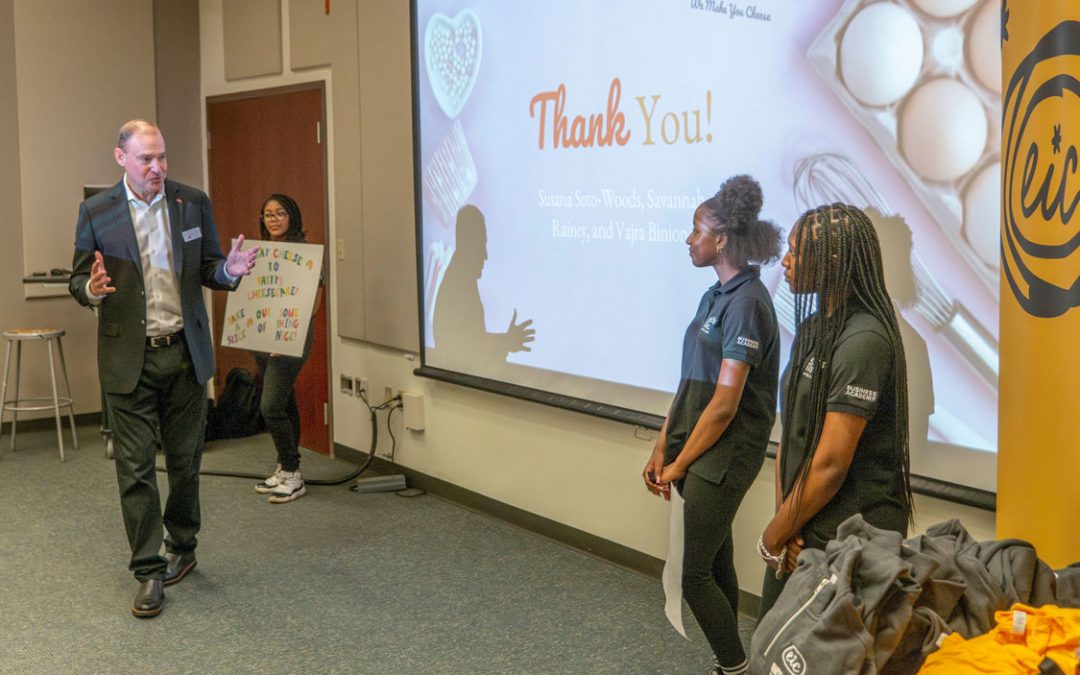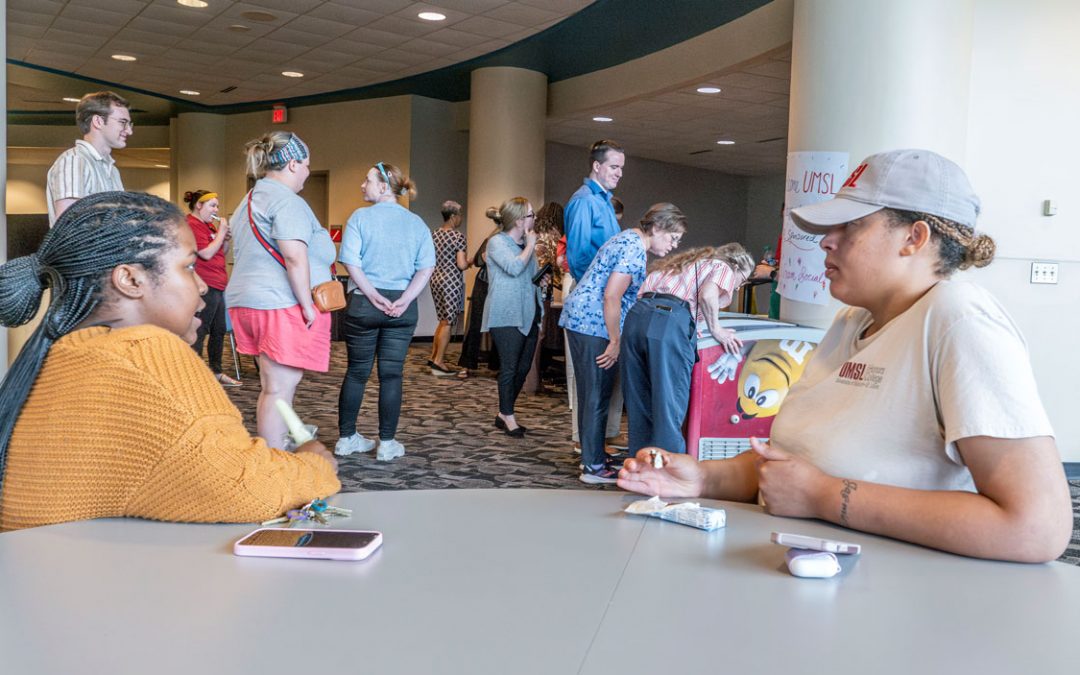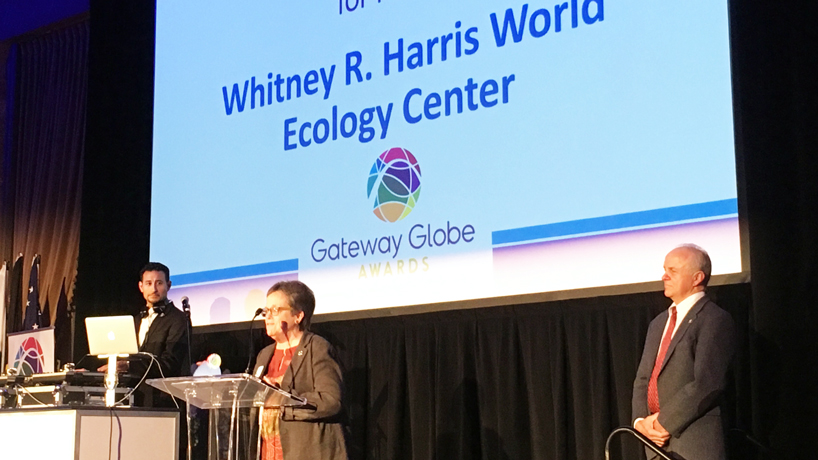
Patricia Parker accepts the World Affairs Council of St. Louis’ Gateway Globe Award on behalf of the Whitney R. Harris World Ecology Center at a Nov. 1 dinner at The Coronado Ballroom. (Photos courtesy of Whitney R. Harris World Ecology Center)
The Whitney R. Harris World Ecology Center has been around nearly three decades, helping support the research and training of graduate and undergraduate students at the University of Missouri–St. Louis.
The center – a partnership of UMSL, the Missouri Botanical Garden and the Saint Louis Zoo – has not only helped cultivate global ecology and conservation leaders, but it has also promoted ecology education in the St. Louis community and beyond.
The World Affairs Council of St. Louis recognized the Harris Center’s contributions to global conservation efforts on Nov. 1, when it awarded the center the Gateway Globe Award for Policy. It noted that “more than 260 students have come from 37 countries” have benefitted from the center’s support.
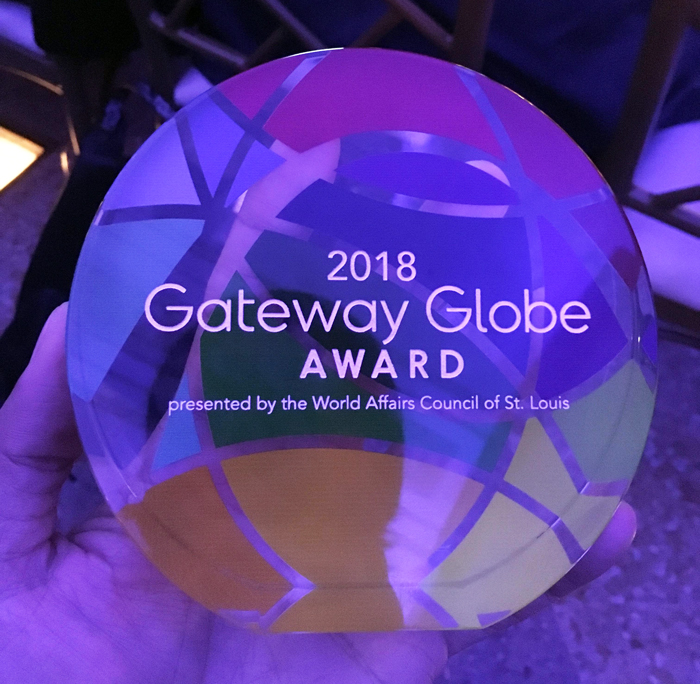
The World Affairs Council of St. Louis honored the Whitney R. Harris Center with the 2018 Gateway Globe Award for Policy.
“We are proud to be recognized by the World Affairs Council with their Gateway Globe Award for Policy,” said Patricia Parker, the Harris Center’s interim director and the E. Desmond Lee Endowed Professor in Zoological Studies. “The WAC fosters connections between St. Louis organizations and the rest of the world, stimulating and supporting international networks. Our graduates are exactly that – a global network interested in understanding and protecting global biodiversity, and we are honored to be recognized for this.”
As grateful as Parker was for the recognition, she’s even more excited about the work the Harris Center continues to do to promote ecology and conservation efforts.
That includes hosting its annual Whitney and Anna Harris Conservation Forum, as it did last Thursday in the Anheuser-Busch Theatre inside The Living World at the zoo.
The title of this year’s program was “Traditional Ecological Knowledge” and featured presentations from Gregory Cajete, Deborah McGregor and Daniel Wildcat, all Native Americans.
Cajete is a Tewa Indian from Santa Clara Pueblo in New Mexico whose work honors the foundations of indigenous knowledge in education. His presentation was titled “Living the Earth, Facing the Sun: A Philosophy of Native Science.”
McGregor is a member of the faculty at York University’s Osgoode Hall Law School and has a cross-appointment with the faculty of Environmental Studies. Her research has explored indigenous knowledge systems and how they’re applied in areas such as water and environmental governance, environmental justice, health and environment and sustainable development. Her presentation was titled “Traditional Ecological Knowledge and Environmental Futures.”
Wildcat is a Yuchi member of the Muscogee Nation of Oklahoma, and he teaches in the Department of Indigenous and American Indian Studies at Haskell Indian Nations University. His presentation was titled “Traditional Ecological Knowledges: An Antidote To Destruction.”
“It struck me from Dr. Wildcat’s lecture that in his language there is no word for our concept of ‘resource,’ as they do not think of other plants and animals on earth as being there for our use,” Parker said. “I think we have much to learn from others.
“We must learn to think about our relationship with nature differently, so that we don’t continue to lose the other creatures on our planet. My hope is that by talking with people with different world views, we may see our way to a more respectful and harmonious relationship with nature.”











